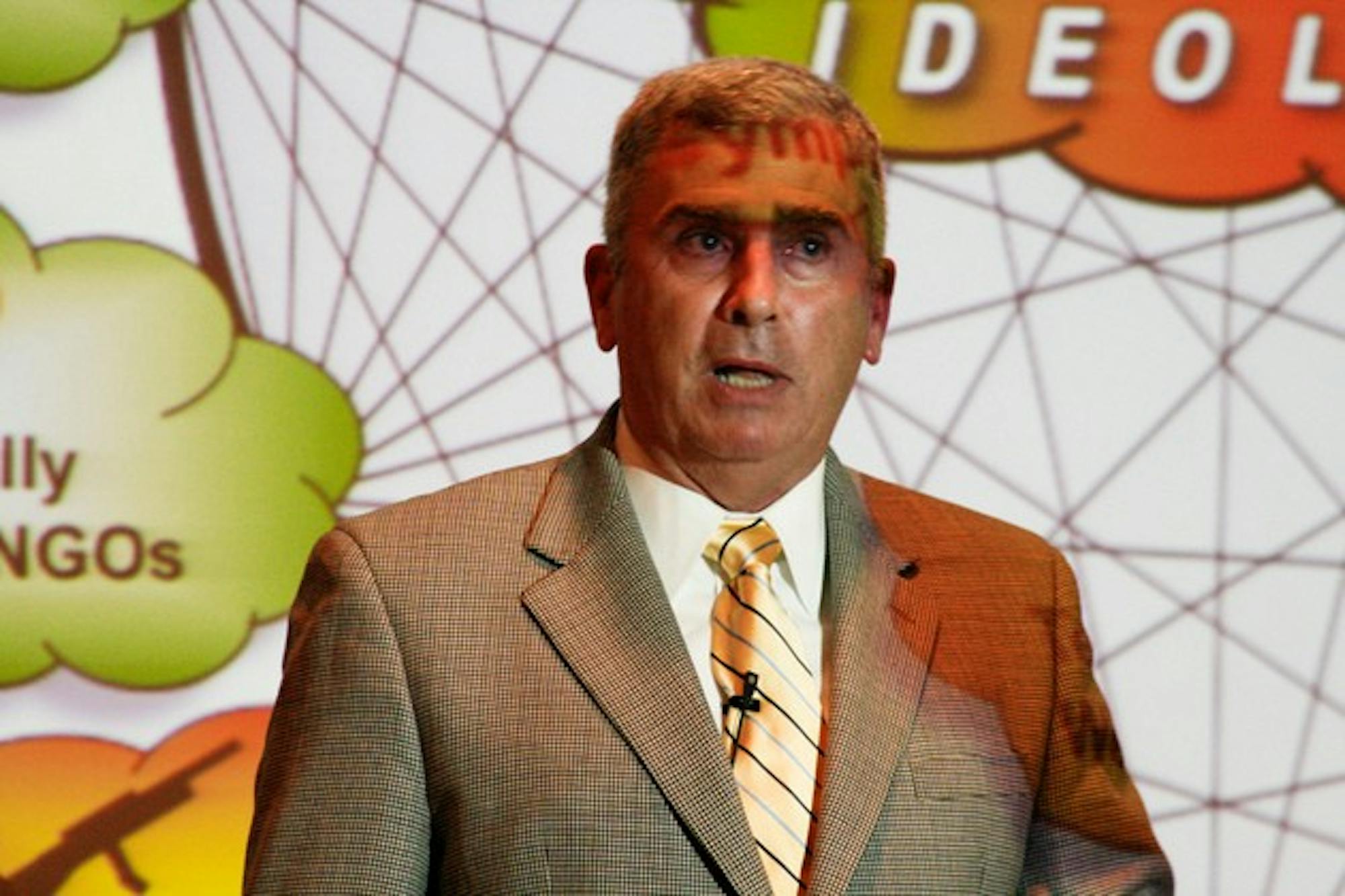"You're going to be the future leaders of the United States, whether you like it or not," Abizaid said in his closing remarks to an overflowing audience in Filene Auditorium. "You're going to have to decide whether to be part of the problem-solving class or part of the critical class. You've been given a tough hand."
Abizaid advocated service to the global community and outlined four strategic issues he believes the United States should address in the Middle East in his speech, titled "The United States and the Middle East: Strategic Choices for the Way Ahead."
According to Abizaid, the United States should focus on combating the rise of Sunni Islamic extremist groups such as Al Qaeda, containing the Islamic regime in Iran, shedding light on the "continued lack of clarity" in the Arab-Israeli Conflict and ending U.S. reliance on Middle Eastern oil. Above all, the U.S. military should work to stabilize the conflicts in Afghanistan and Iraq, he said.
The U.S. Armed Forces are not large enough to adequately confront problems in the Middle East, however, and should increase its membership to reduce the strain on American soldiers, Abizaid said.
"We need to quit being the primary military force providers in the region," he said. "We need to transfer authority to indigenous forces."
The United States should also reach out to its allies in order to deal with conflicts in the volatile region, according to Abizaid.
"We need to not just think of ourselves as a lone actor in the world," Abizaid said in an interview with The Dartmouth Monday.
Currently, armed forces account for 80 percent of U.S. strength in the Middle East, Abizaid added, but the military should ideally only represent 20 percent of our influence. The United States should use its powerful intelligence, diplomatic, economic and educational resources to solve problems, rather than relying solely on military force, he said.
Abizaid also stressed the importance of educating Americans about the religions, cultures, economies and governments of the Middle East.
"We have to be realistic, the American style of democracy is not exportable just anywhere," Abizaid said.
Despite the many conflicts in the Middle East, Abizaid said he remains "cautiously optimistic" about America's ability to resolve them.
"I don't think there is a problem that the United States can't deal with," Abizaid said in his speech.
Abizaid added that he did not intend to debate the decisions of politicians, but wanted simply to offer "straight talk" to the people.
"I'm not a Democrat, I'm not a Republican, I'm a former soldier," he said. "That's one of the good things about being a retired four-star general. You can have an opinion."
Abizaid retired from the U.S. Army in May 2007 after 34 years of active service, including a tour as the longest-serving commander of United States Central Command, which supervises military operations in 27 countries stretching from northeast Africa and the Middle East to Central Asia. He has also served as director of the Joint Chiefs of Staff and has commanded units in combat zones worldwide.
The Montgomery Fellows Program fall lecture series, "America in 2008: Perspectives and Reflections," was designed to spark conversation about current events, especially in the context of the upcoming presidential election, according to Katharine Conley, Montgomery Fellow steering committee member and associate dean of the faculty for the humanities.
Abizaid plans to visit seven classes during his visit to Dartmouth, and he has also met with veterans, students in the War and Peace Fellows Program and students at the Ethics Institute.




